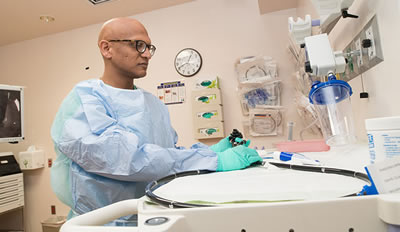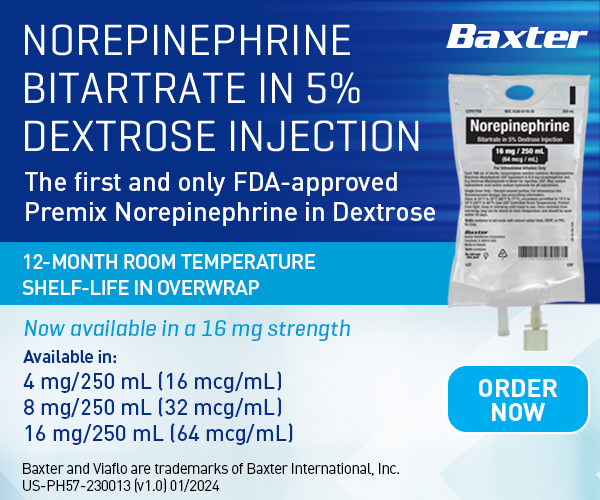More Than 80% of Patients Meet Recommendations

Samir Gupta, chief of gastroenterology at the VA San Diego Healthcare System, preparing to perform a colonoscopy to screen for colorectal cancer. He leads the VA Colonoscopy Collaborative. VA photo by Christopher Menzie
LOS ANGELES—More than four out of five veterans eligible for colorectal cancer screening have been screened, putting the largest healthcare system in the United States among the top performers nationwide in this important metric, according to a recent study.1
Colorectal cancer kills more people in the United States than any malignancy except lung cancer. The National Cancer Institute estimates that, in 2019, about 145,000 new cases will be diagnosed and 51,020 people will die from colorectal cancer.
CRC is the third most diagnosed cancer in the VA, with about 4,000 cases diagnosed each year, said study lead author Folosade May, MD, physician scientist and staff gastroenterologist at the West Los Angeles VAMC.
To reduce the number of people affected by CRC, the National Colorectal Cancer Roundtable set a goal of “80% by 2018,” that is, screening 80% of adults over age 50 by 2018.
The VA beat that goal by more than five years. The study by May and her colleagues showed that 81.5% of screening-eligible veterans enrolled in the VA were up to date in their CRC screening between October 2013 and September 2014.
“The VA does an extraordinary job of getting veterans screened,” May said. “While 1 in 3 Americans remains unscreened, 82% to 84% of veterans are current on their screening today.”
The VA’s high rates may be attributed to both patient and system characteristics. “There’s been a huge effort across the nation to increase CRC screening,” May noted. “The VA has a metric for screening all veterans and electronic reminders to order screening tests, but our patients are a big part of our success. Veterans have high rates of adherence to physician recommendations and high rates of interaction with medical care, so they’re more likely to be identified as needing to be screened.”
Next: Screening Recommendations

